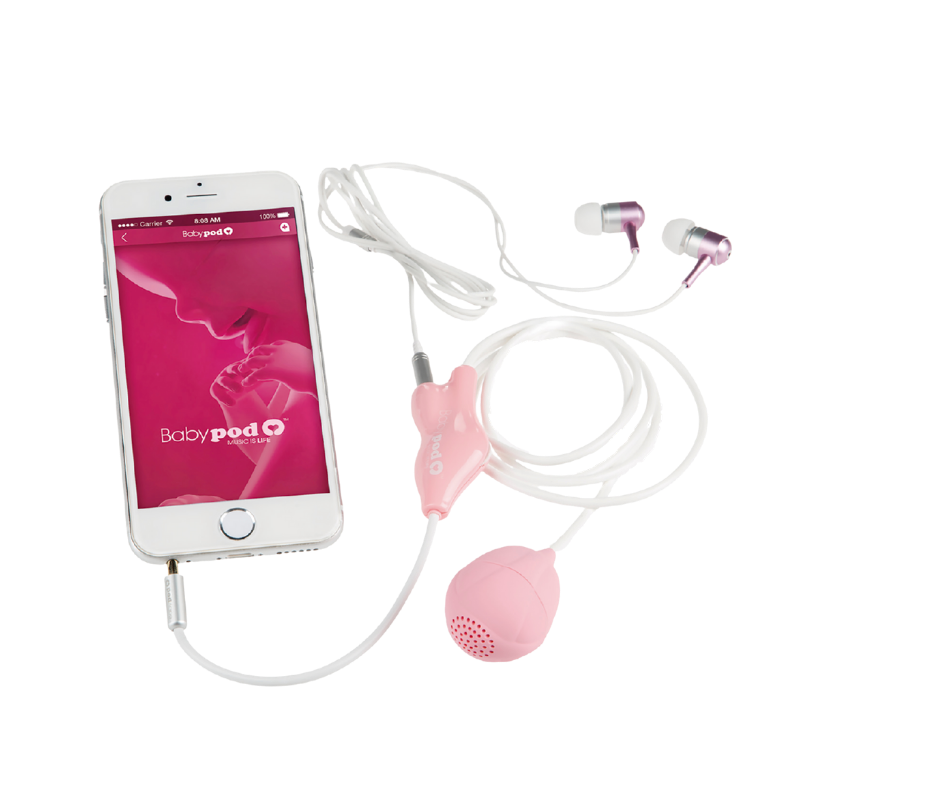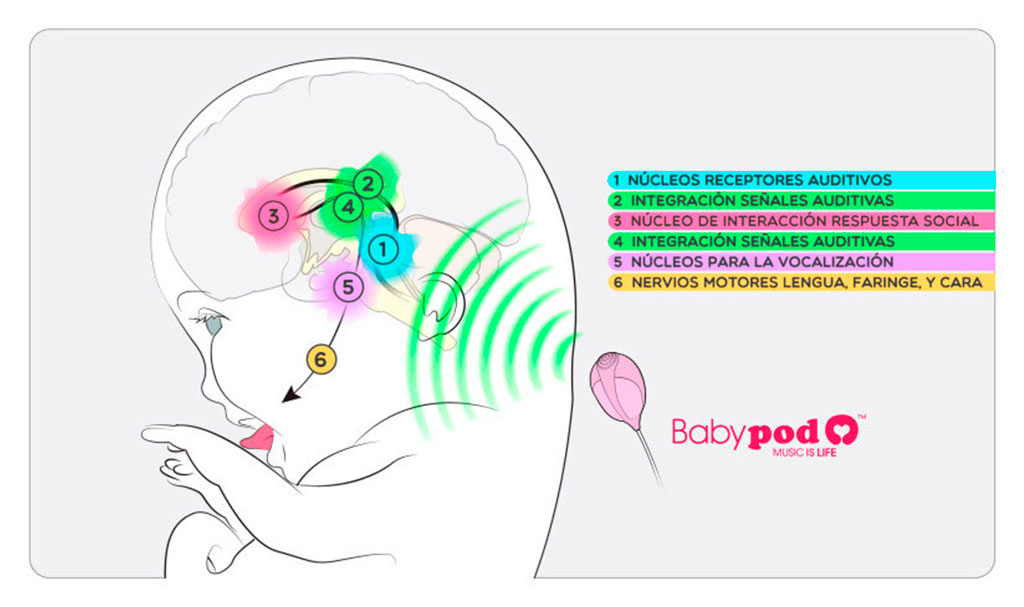The foetus receives sounds from inside its mother's body, such as her heartbeat, breathing and bowel movements. It also picks up sounds from what its mother is doing, when she is talking or walking in her heels, as well as hearing noises from outside.
The foetus is very protected from noise. The fact that it lives in a soundproof environment means that sounds reach it distorted, as has been confirmed by research on sheep using intrauterine microphones. According to these studies, most sounds reach the foetus as a whisper (about 30 decibels), while the mother's voice in normal conversation (60 decibels) hardly reaches him at all (24 decibels).
Moreover, as most of the sounds are very repetitive, he gets used to them and does not react to them. They do not prevent him from sleeping.
Thus, we can say that the sound environment of the womb is like the background noise of a forest.







